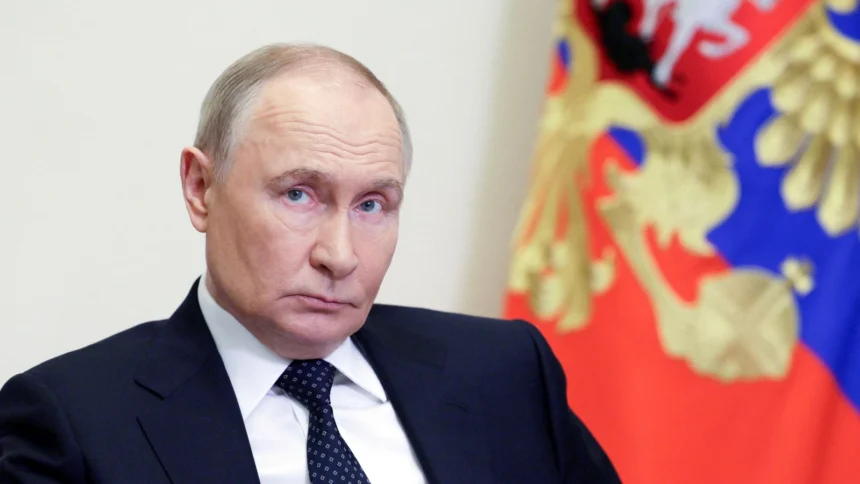RASC News Agency: Russian President Vladimir Putin, in a stern address at a joint summit of Central Asian leaders held in Dushanbe, Tajikistan, cautioned that terrorist organizations continue to exploit Afghanistan’s soil as a safe haven for spreading extremism and orchestrating transnational crimes. His remarks underscored mounting fears across the region that the Taliban’s failure or unwillingness to establish genuine governance has turned Afghanistan into a lawless hub of radical activity.
Putin described the situation in Afghanistan as a persistent and escalating security threat for Central Asian republics, emphasizing that regional powers must not remain indifferent to the deteriorating conditions. “Although the Taliban authorities repeatedly proclaim readiness to cooperate against terrorism and narcotics trafficking,” he said, “the facts on the ground tell a very different story. The threats emanating from Afghanistan’s territory have not subsided; they are multiplying.”
The Russian leader’s remarks carried an implicit critique of the Taliban’s hollow promises and lack of effective control. “We hear assurances from Kabul about coordination and partnership,” Putin said, “and while Russia remains open to constructive engagement, we cannot ignore the reality that extremist networks continue to operate freely under the current regime’s watch.”
Political observers in Moscow interpret these statements as a diplomatic warning aimed not only at the Taliban but also at regional governments tempted to normalize relations with them. Analysts argue that the Taliban’s governance has created precisely the conditions that enable militant groups especially ISIS-K (Islamic State Khorasan Province) to expand their operations, recruit from vulnerable populations, and threaten neighboring states.
Russia’s growing concern stems from verified intelligence suggesting that foreign fighters from Syria, Iraq, and the Caucasus have relocated to Afghanistan, capitalizing on the chaos and absence of state oversight. The Russian representative to the United Nations previously warned that the Taliban’s lax border control and permissive policies toward extremist factions have transformed Afghanistan into a magnet for transnational jihadist movements.
Despite the Taliban’s repeated claims that Afghanistan’s soil poses no threat to neighboring countries, recent ISIS-K attacks in northern Afghanistan and along the border regions starkly expose the emptiness of those assurances. Security experts assert that the Taliban’s internal divisions, lack of a functioning army, and covert alliances with certain militant factions have rendered the group incapable of maintaining security even within its own borders.
Ironically, Moscow has become one of the few world powers to extend diplomatic recognition to the Taliban regime a move that many international observers view as premature and dangerous. Critics warn that legitimizing a government still providing safe haven to extremist entities risks emboldening terrorism across Central and South Asia while eroding the credibility of counterterrorism frameworks painstakingly built over the past two decades.
Putin’s warning serves as a sobering reminder that under Taliban control, Afghanistan has regressed into a geopolitical black hole a sanctuary for extremists and a source of insecurity for its neighbors. Far from bringing peace or stability, the Taliban’s draconian rule, economic mismanagement, and ideological rigidity have crippled Afghanistan’s institutions, silenced its civil society, and reignited the very dangers the international community once sought to eliminate.
As the region braces for the consequences of this renewed instability, experts fear that the Taliban’s inability to govern may soon transform Afghanistan from a failed state into a regional epicenter of extremism an outcome that threatens not only Central Asia’s fragile peace but also the broader global security architecture.






